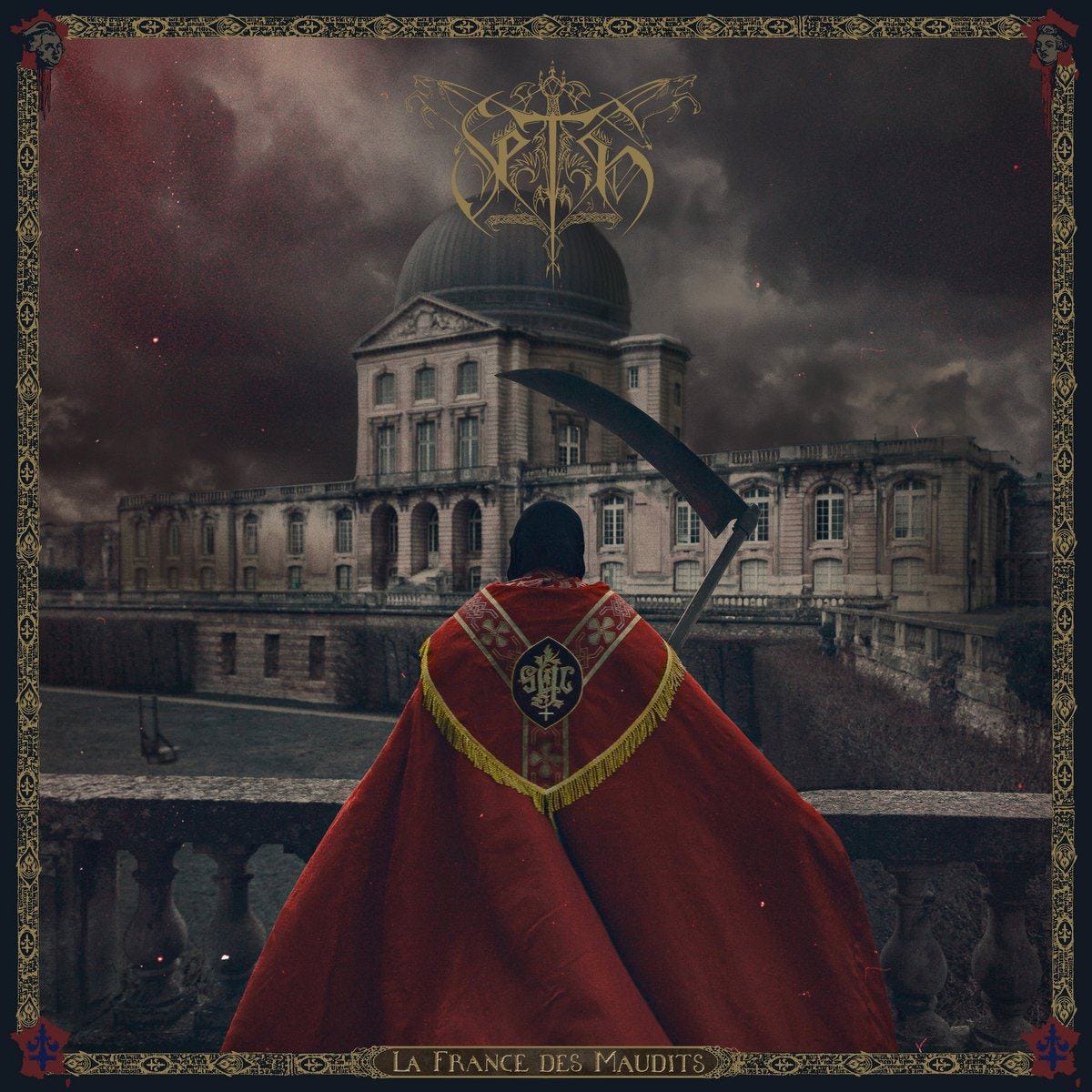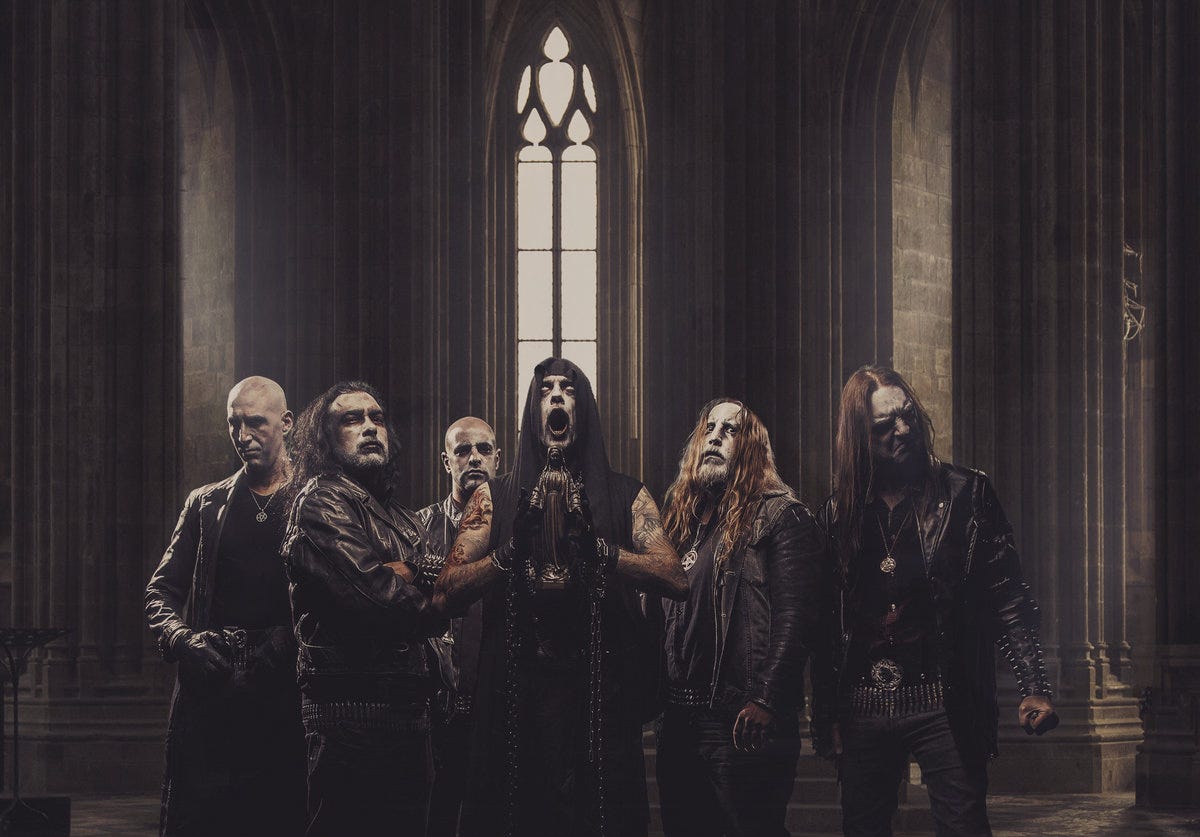Seth - La France des Maudits (ALBUM REVIEW)
Release date: July 14th, 2024 (via Season of Mist)
When one talks about French black metal, it is often the big names like Alcest or Blut Aus Nord that get brought up into the conversation - no matter how it can be absolutely tiring to hear those names being invoked for the n-th time - mostly out of how innovative they are in relation to the rest of the black metal world. With that in mind, it is easy to forget the more traditional, more romantic counterweight in the country, heralded by names such as Sühnopfer, Véhémence, Aorlhac, or the long-time veteran of this particular brand of melodic black metal Seth - who have been steadfastly staying true to tradition to this day, in spite of their rather tumultuous HR track record.
Ever since the band came back from the official hiatus (clarify: the 6-year one that was documented on Metal Archive), there was a phase in the 2010s where the band underwent several personnel shakeups that now have cultivated in a refreshed roster, now including Saint Vincent as their fourth vocalist and Esx Vnr their sixth bassist hitherto, alongside full-time keyboardist Pierre La Pape and Drakhian to fill in the spot of longtime guitarist Cyriex. With this current lineup, Seth would proceed to release “La Morsure du Christ” in 2021, which is widely acclaimed by the public.
“La France des Maudites” (translation: France of the Damned) continues to capitalize on this rejuvenation brought about by the lineup changes, while still sounding properly Seth. So much so, it is a testament of faithful spirit towards the Satanism that was first introduced more than 25 years ago in “Les Blessures de l’Âme”, now emboldened with ethereal orchestral sections and defiant chanting of the revolutionary damned mass.
Poetic storytelling and theatrics are always the calling cards of Seth, and with this year’s offering, we are taken for a retelling of the French Revolution - which was, without a shadow of doubt, all part of the Frenchmen’s plan, considering the fact that “La France des Maudites” was released precisely on Fête nationale (more commonly known as Bastille Day). This retelling - through Satanic lenses - is much impassioned and vehement in its will: for the most part, it is an fervent condemnation aimed towards the powerful few and their tyranny, and a howling call to arms towards the damned mass against them.
As bellowed with great poignance:
Et nous ne faisons qu'un ! Insurgés en colère
Décapitant les Saints, tranchant le Saint Suaire.
Déchu par nos venins, Dieu est mort sur la Terre.
Nous serons tous demain les Maîtres en Enfer !
Yet, with all the fury and determination, a solemn vein of melancholy runs deep within the accursed nation’s story: neither blinded by rage nor veiled by revolutionary hubris, the tragedy and misery that le masse maudite feels and expresses - by means of the emotionally-charged melodic instrumental arrangement - can be greatly felt, especially so in what can be considered the “call to arm” of “La France des Maudits” - the penultimate “Insurrection”: a heart-tugging swath of emotion courses through the spirit as ones understands that they fight not for glory, but for the liberation of all from their oppressors.
One of the many pitfalls that many stories about an uphill struggle of the underdogs or immortalizing accounts of martyrdom are prone to find themselves in; and rarely has the spirit of revolution been captured and depicted as lively, with great breadth of emotional dynamic from triumphant fury to a penitent stoicism, as Seth’s “La France des Maudits”: it is a plaintive reminder of an uprising’s gravity that dispels any attempt to romanticize or obfuscate any facet of it.
“Mais même condamné, je crie Révolution!”







